

At our dedicated adult therapy center, we focus on enhancing essential communication skills for individuals facing speech, language, or swallowing challenges. Our services include personalized assessments and targeted therapy for speech disorders, language difficulties, and swallowing issues. We are committed to creating a supportive environment where adults receive the specialized care they need to communicate effectively and improve their quality of life.
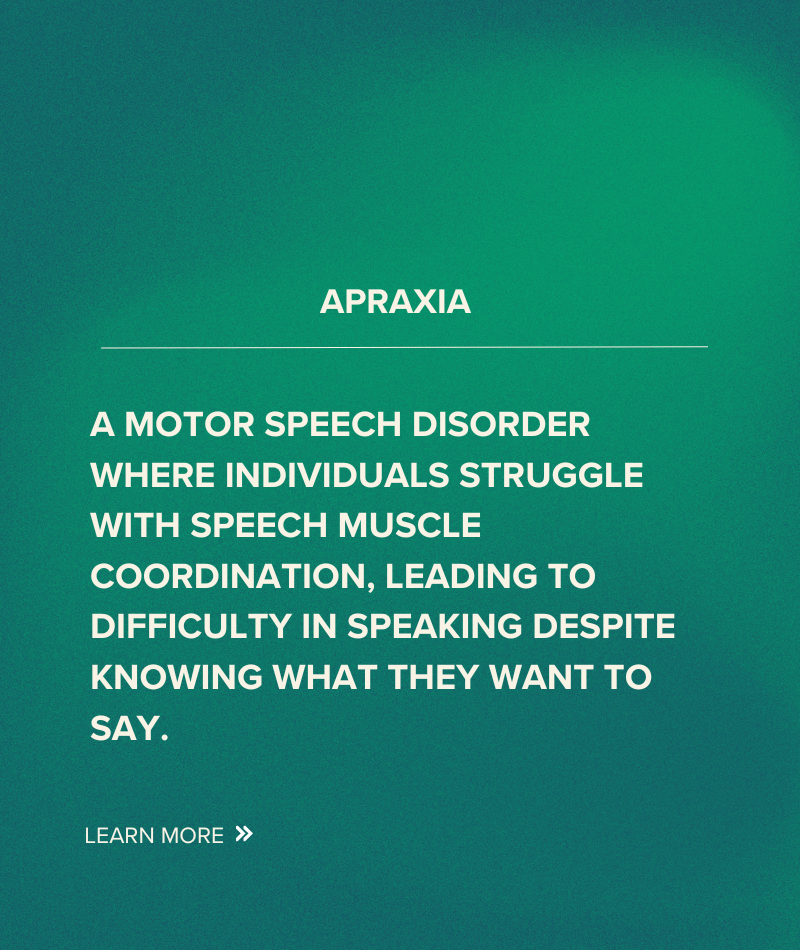
Adult Apraxia of Speech is a motor speech disorder in which individuals face challenges with the coordination of speech muscles. Despite knowing what they want to say, they struggle to make the correct movements needed for speech. This condition is often frustrating, as individuals may produce inconsistent errors and find it difficult to speak clearly.
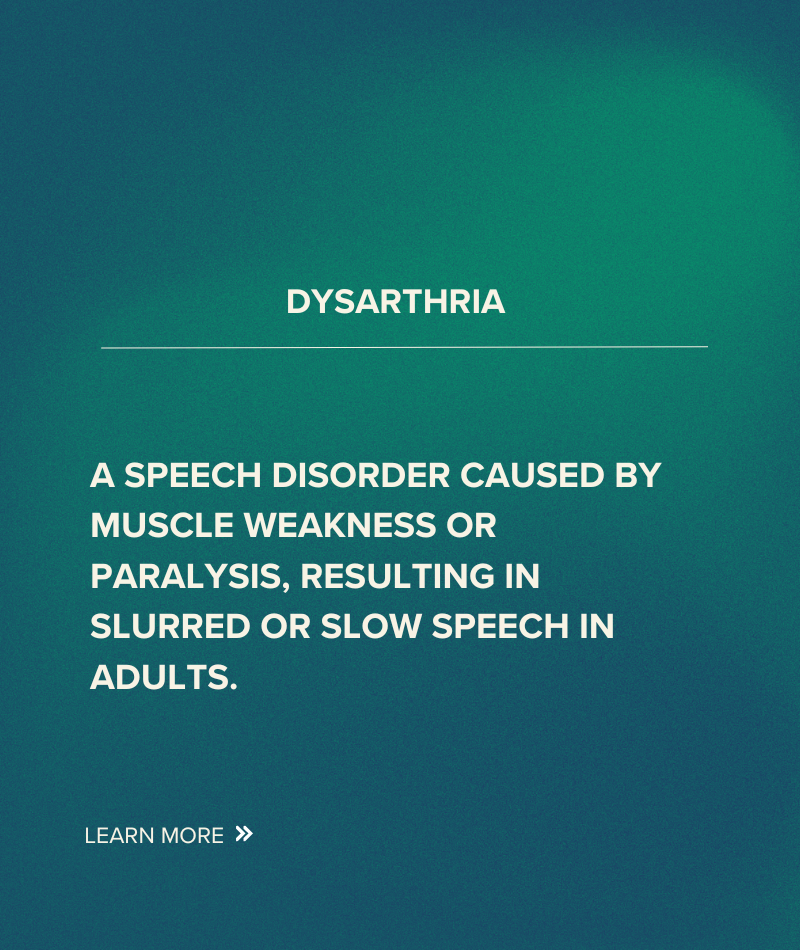
Dysarthria is a speech disorder that results from muscle weakness or paralysis, often caused by neurological damage. Adults with dysarthria may experience slurred, slow, or difficult-to-understand speech. The impairment in muscle control affects speech articulation, making communication more challenging and sometimes requiring speech therapy for improvement.
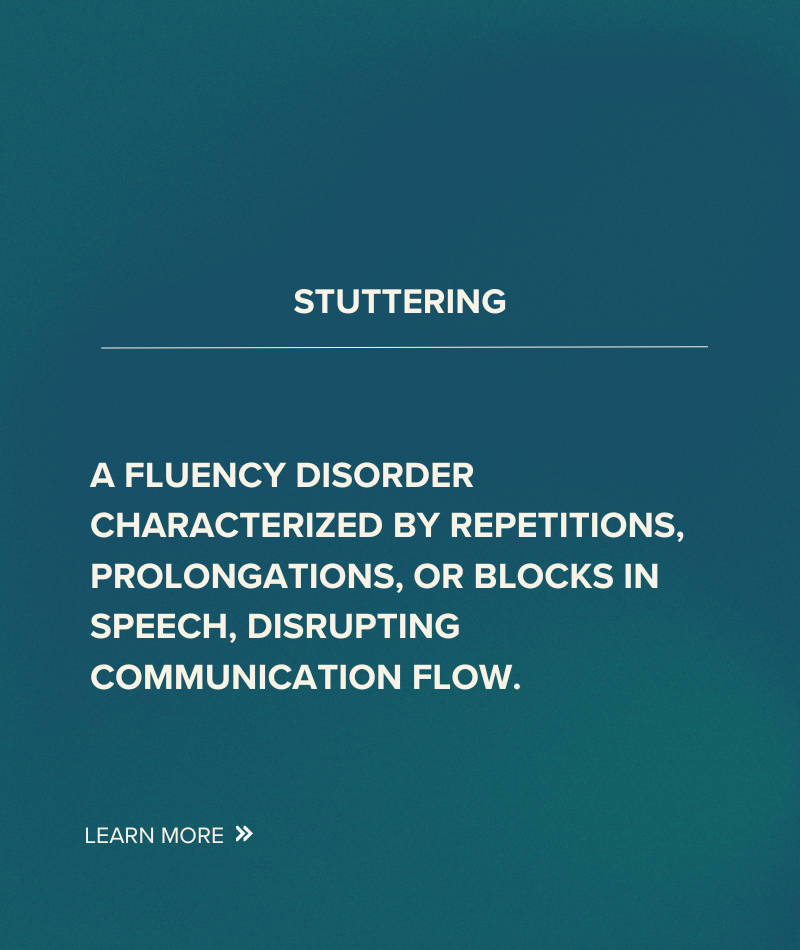
Stuttering is a fluency disorder characterized by frequent disruptions in the normal flow of speech. Adults who stutter may experience repetitions of sounds, syllables, or words, as well as prolongations or blocks that interrupt speech. This can lead to frustration and anxiety in social situations, but with appropriate therapy, fluency can be improved.
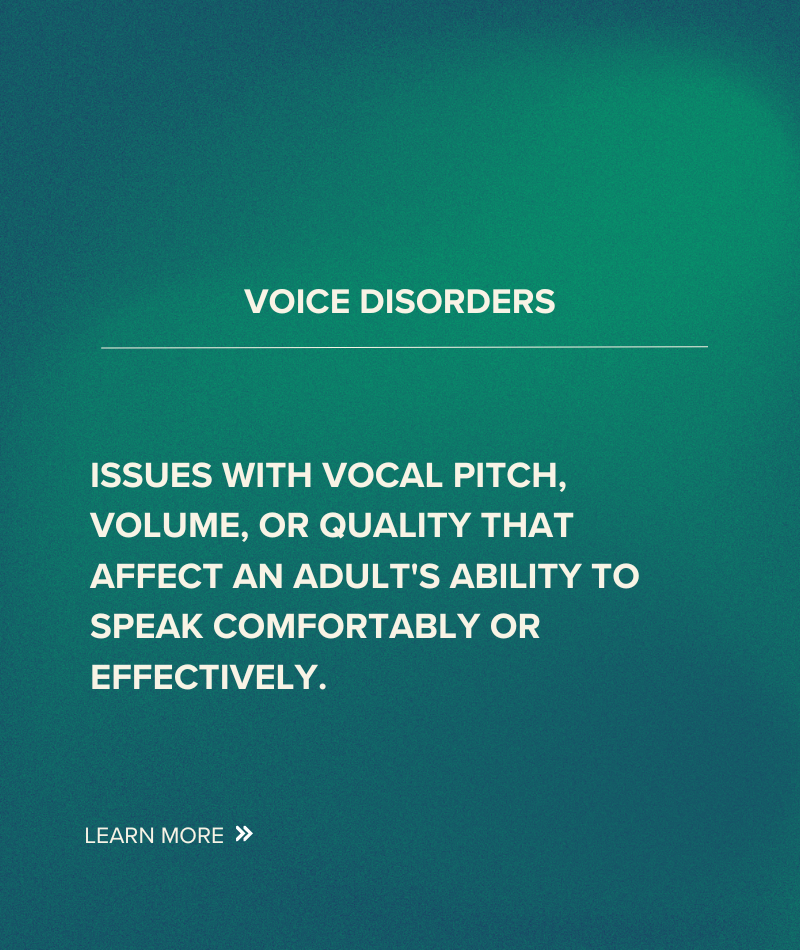
Adults with voice disorders may experience issues with the pitch, volume, or quality of their voice, making it uncomfortable or difficult to speak. Common symptoms include hoarseness, vocal strain, or loss of voice, which can significantly impact communication and quality of life. Treatment often involves voice therapy to improve vocal function.
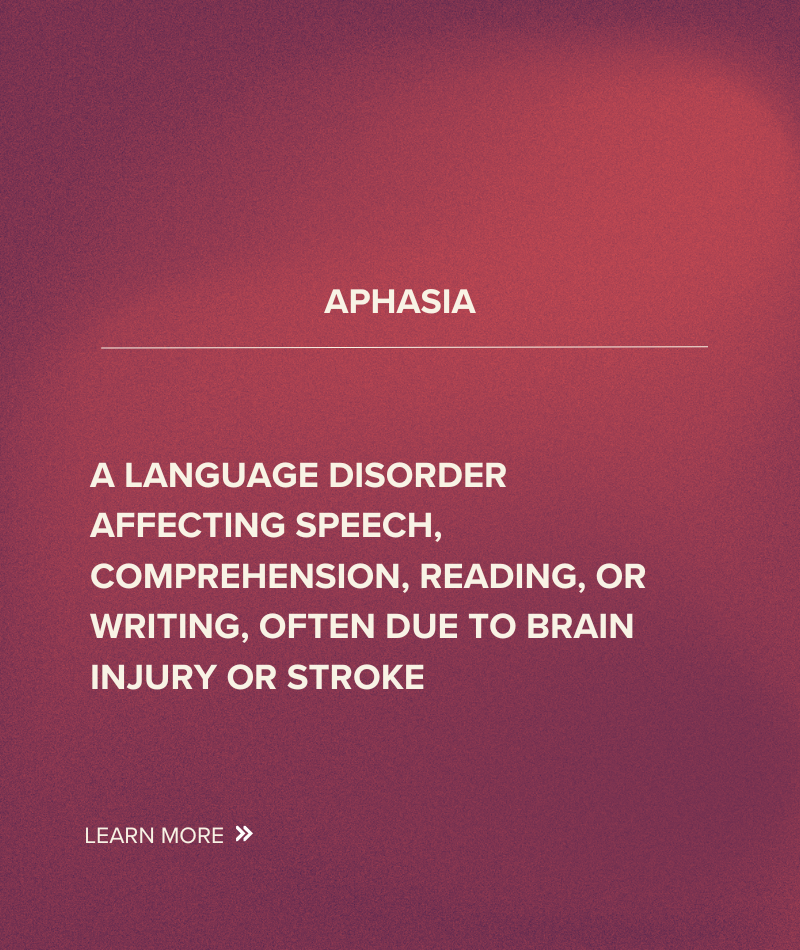
Aphasia is a language disorder that affects an adult's ability to speak, comprehend, read, or write. It is commonly caused by brain injury or stroke. Individuals with aphasia may struggle with word retrieval, sentence formation, or understanding language, often requiring therapy to regain communication abilities and adapt to their challenges
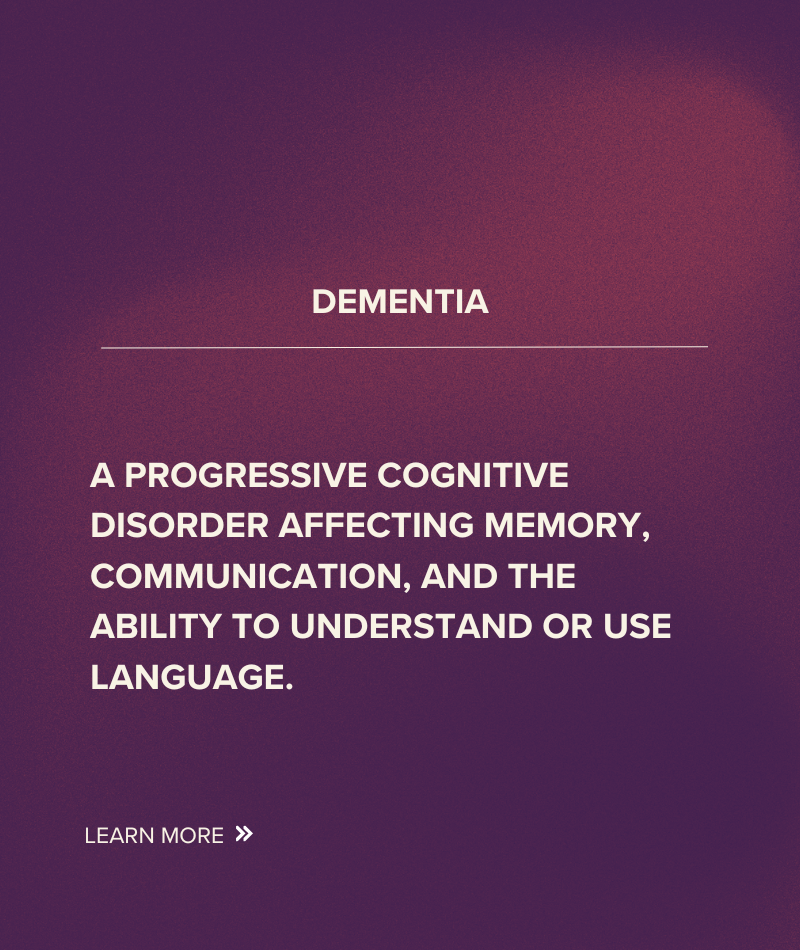
Dementia is a progressive cognitive disorder that affects memory, communication, and language comprehension. Adults with dementia may experience difficulty recalling words, following conversations, or understanding language. As the condition progresses, these language and cognitive issues often become more severe, impacting everyday communication.
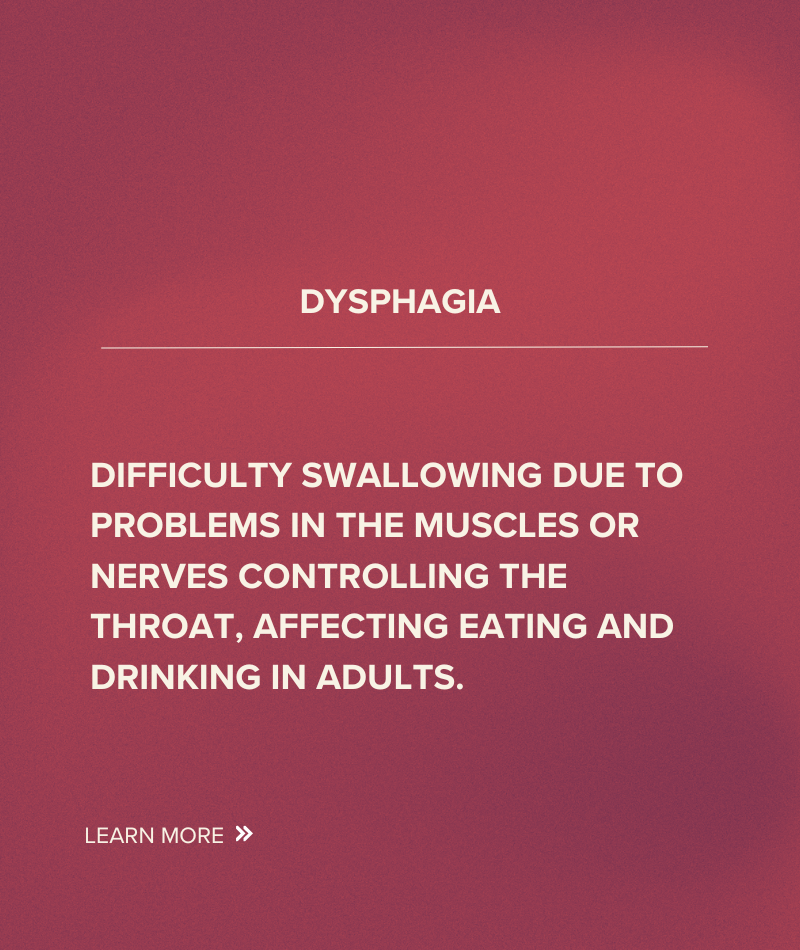
Dysphagia is a swallowing disorder caused by problems in the muscles or nerves that control the throat. Adults with dysphagia may find it difficult or painful to swallow food and liquids, which can lead to nutritional issues and aspiration risks. Speech-language therapy focuses on improving swallowing function and ensuring safe eating and drinking.